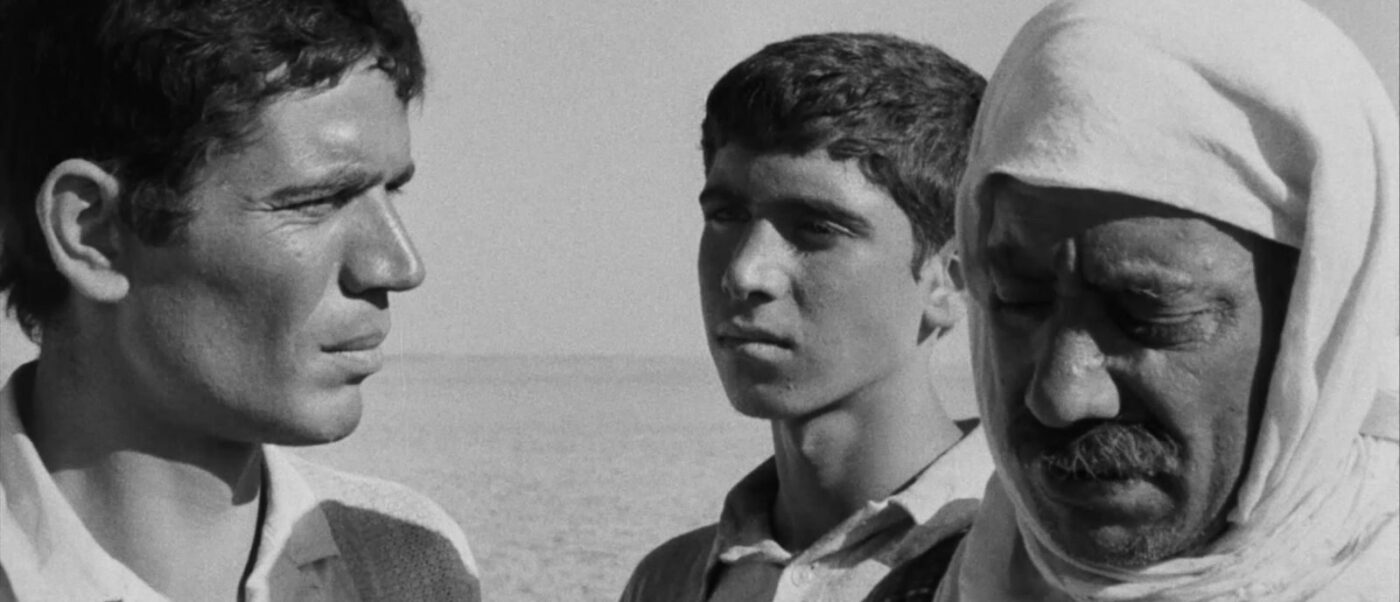
The Dupes by Tawfiq Saleh: More Tired Than Anyone Should Be
Cinematekene er et samarbeid om felles digitale visninger på cinematekene i Bergen, Kristiansand, Lillehammer, Oslo, Stavanger, Tromsø og Trondheim. Montages setter gjennom ukentlige artikler fokus på filmene i utvalget. Tewfik Salehs The Dupes (1972) vises fra torsdag 11. april – sjekk tidspunkter i oversikten hos ditt cinematek.
*
Chama Al Houari (b. 2002) is an aspiring filmmaker from Morocco. She is currently studying at NSKI in Oslo, and is passionate about film history and how movies reflect the world.
*
I. Introduction:
UN’s relief agency UNRWA estimates that in 1948 around 750,000 Palestinians were violently forced out of their homes and native lands after the United Nations Partition Plan to divide the country was rejected. Exact numbers are difficult to find, but since 1948 there are now 5.9 million Palestinians who are displaced, according to UNRWA, with an additional 2 million forced to move internally.
As of today, 76 years after the first Nakba, the catastrophe which many consider a genocide has only intensified with approximately 110,000 Palestinians killed in total – including recent casualties since October 7th 2023. The question arises, how has this ongoing massacre continued over the decades?
Sensibly speaking, if the world was aware of these atrocities surely they would have been put to an end. The question then becomes; has there been no successful attempt in exposing and bringing this inhumanity to light?

Tewfik Saleh‘s film The Dupes (“Al-makhdu’un”, 1972) follows the story of three Palestinian men, Abu Qais (Mohamed Kheir-Halouani), Assad (Bassan Lofti Abou-Ghazala), and Marwan (Saleh Kholoki) who for various reasons attempt to escape their precarious lives to find prosperity in Kuwait. The film opens with a quote; “A man with no country, will have no grave in the Earth, I forbid you to leave”.
Though the three men are aware that the journey through the desert is long and dangerous, they decide to put their lives in the hands of Abul Khaizuran (Abdul Rahman Al Rashi), a retired military man who promises them a way through the border in an empty water tank.
Slowly, as the plot unwinds we are told the stories of the characters and begin to understand the circumstances which led to this ultimate state of desperation, the need to escape. Abu Qais is an older man with a wife and children living in a run down refugee camp with no prospects or vision for a worthwhile future. Having no source of stable income or plan, he is sold on the idea of Kuwait when another man returns to flaunt his success.
Abu Qais is convinced that the only way forth is elsewhere. Assad is a young man desperate for the freedom to live his life without financial dependency on his uncle. He is also a radical hiding from Jordanian authorities. Marwan is a young boy who after being abandoned by his father, is forced to leave his education in order to provide for his mother and younger siblings. Despite their difference in age and situation, the three men have two things in common, they are Palestinian and they are desperate for a way out.

The men make it past the first desert checkpoint with great difficulty in the scorching heat, inside a water tank reaching unsurvivable temperatures. They only have a few minutes to live inside it at a time, six minutes to be precise. Once at the second checkpoint, the border officers begin teasing Abul Khaizuran (the smuggler) who is a regular traveler, asking about his ventures with Kuwaiti prostitutes. Being rendered impotent by war, Abul Khaizuran for whom the topic of intimacy is extremely sensitive engages in conversation with the men, leaving the three refugees to boil in the tank. Upon his return, he discovers that the men are dead. He asks, “Why didn’t you bang? Why didn’t you do something?”.
The words echo louder than the voice that carries them, invoking the question of resistance as a whole. Must we resist even though we are destined to lose? And if we must fight a losing battle, which losses hold within them the brighter victories?
II. Visionary Ideals in the Tradition of Arab Film and Literature:
The Dupes is Egyptian director Tewfik Saleh’s sixth film, over the course of a tumultuous career of deeply political cinema. Born in Alexandria in 1926, Saleh was interested in Arab literature and obtained a bachelor’s degree in the field before moving to Paris in 1950, where he studied cinema. The filmmaker then returned to Egypt where he directed his first feature, Fools’ Alley (“Darb al-mahabil”, 1955) in collaboration with prominent writer Naguib Mahfouz.
The film’s focus being essentially a critique of materialism, it defined Saleh’s dedication to voicing leftist revolutionary ideas. Active from 1955–1980, Saleh lived out a long cinematic career working in various Arab countries, including Syria and Iraq, with a committed thematic focus on the Palestinian cause, for which he was nicknamed “Sinbad of Arab Cinema”.
“Cinema is a tool for change, not a dedication to distorting reality and tickling the feelings of the masses before sending them to sleep with all good wishes to have sweet dreams,” he said. Saleh deeply believed in cinema’s ability to incite a desire within an audience for the dismantlement of unjust realities through bringing narrative stories of struggle to life. Having collaborated with a number of Arab literature figures and with a passion for Palestinian liberation, his cinematic path collided with the work of Ghassan Kanafani – legendary writer, journalist, poet, and major figure of the PFLP (Popular Front for the Liberation of Palestine).
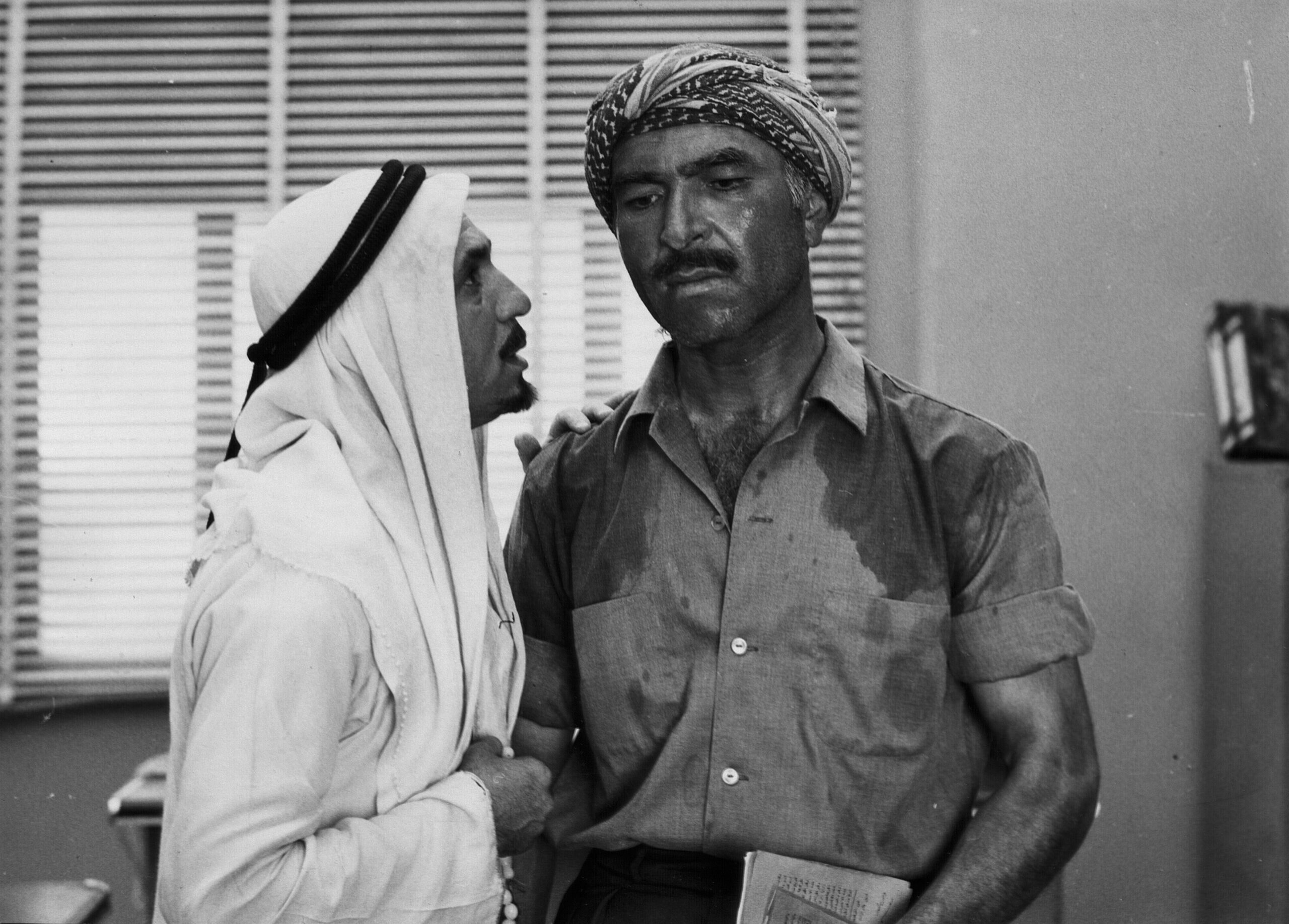
Kanafani, or “The commander who never fired a gun”, was the face of a dispossessed generation of Palestinians forced to flee their native land after the first Nakba in 1948. Settled in Beirut, the author was a part of many branches of the ongoing Palestinian liberation movement. With a bold youthful disposition and unfaltering belief in the cause, Kanafani created waves not only in the Middle Eastern mediatic sphere, but also caught the attention of the West through iconic interviews, becoming a symbol of resistance worldwide.
At its prime, the leftwing newspaper Al-Hurriya, of which he was an editor, reached 23,000 readers, a prominence which helped redefine Palestinian struggle from a nationalistic type of Pan-Arabism to a more Marxist-Leninist revolutionary movement. Though Kanafani was not opposed to armed resistance, he himself never wielded a gun let alone engaged in any military activity, his pen and prose were his weapon of choice. A weapon so powerful it was deemed too effective by Mossad, the Israeli secret service, and Kanafani was assassinated in a car bombing in 1972 at the tender age of 36.
Kanafani’s Men In The Sun (1962) is arguably one of the most admired and influential novels to have enriched the sphere of Arab and Middle Eastern literature, and which The Dupes is based upon. As seen in the film, the story follows the journey of three Palestinian men, all from different generations, attempting to flee oppressive poverty and reach Kuwait, the promised land of wealth and prosperity. Kanafani explores the themes of impotence and passivity, inviting the idea that oppressed peoples always have a choice to resist.
When inaction is chosen in the face of occupation, there is no dignity and where dignity erodes, so does the possibility of life. The writer is quoted saying in a 1970 interview; “To liberate our country, to have dignity, to have respect, to have our mere human rights is something as essential as life itself.”
Men In The Sun not only encourages resistance, it denounces inaction and demonstrates that resistance is in fact the only viable option against the backdrop of imperialism. Kanafani writes his own fate in the character of Mr. Salim, the teacher who chooses not to merely pray but to fight, and who dies at the hands of the occupiers; a martyr.
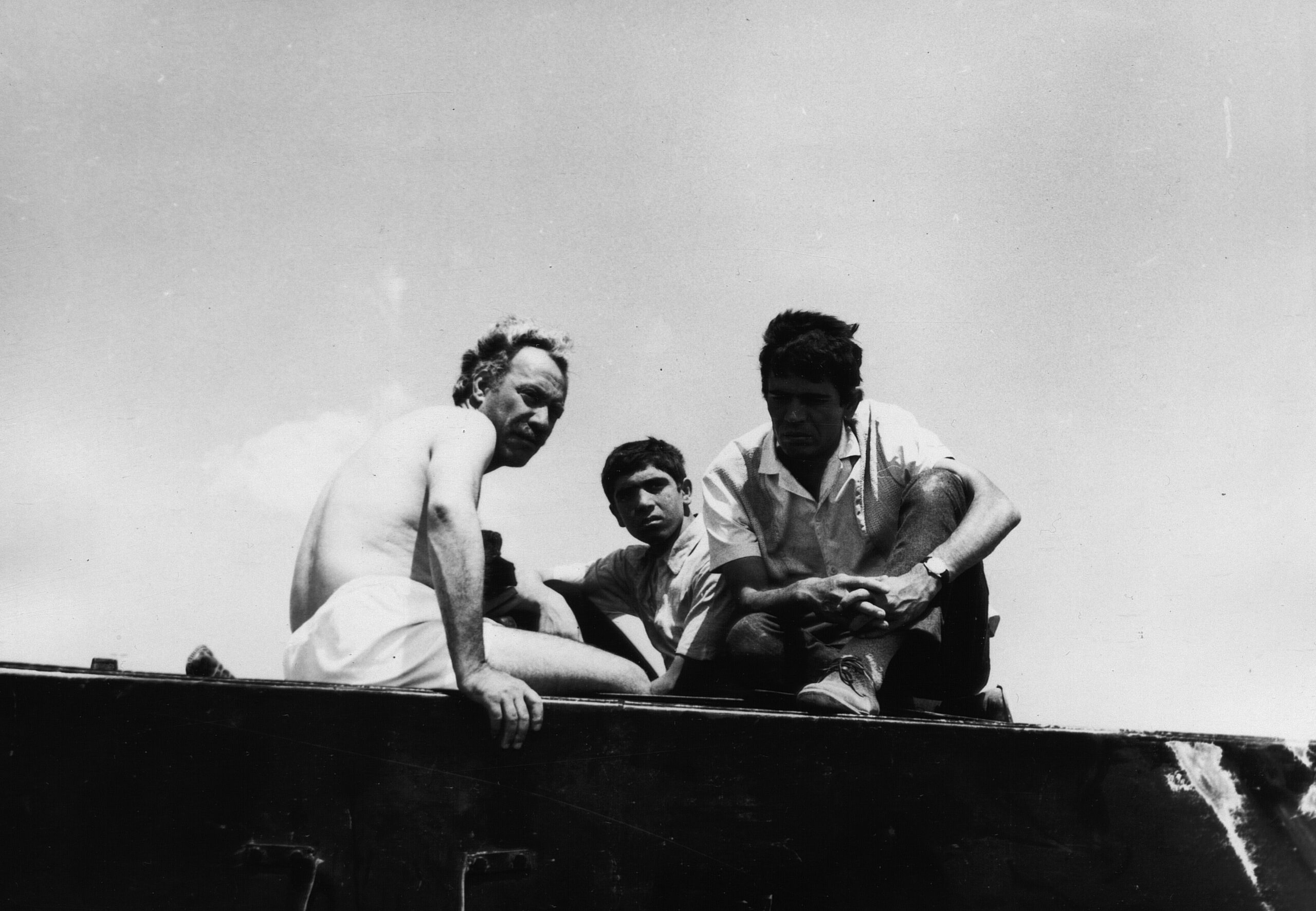
III. The Dupes: Cinematic Depiction of Struggle
Beyond its thematic depth, The Dupes contains elements of innovative and experimental storytelling. A retrospective narrative structure and visual symbolism. After we are introduced to Abu Qais, and witness the downfall of his village, a montage with a text excerpt from Men In The Sun is presented over images of the aftermath of 1948, reminiscent of documentary aesthetics of Third Cinema. This sets the tone for the fragmented narrative style of the film.
The story’s focus shifts from Abu Qais as we reach the smugglers’ office. We are introduced to Assad, the politically active youngster in search of freedom. Through flashbacks we discover that Assad had previously attempted to cross the desert, only to have been left for dead by deceitful smugglers. However, it is unclear whether the sequences are foreshadowings or recounts of the past, elevating the ambiguity and anticipation, mirroring the characters inner emotional states onto the audience. Nonetheless, the young man gambles his fate again, desperate, but less trusting than Abu Qais, who far exceeds him in years.
We are then introduced to Marwan, who despite being the youngest, strikes up a deal with Abul Khaizuran, the Palestinian smuggler. As the men prepare for the perilous journey ahead, we cut to scenes revealing the immense responsibility on Marwan’s shoulders, the fate of this mother and siblings. We discover that the boy’s father, when given the choice, chose to abandon his family and marry anew, for the burden of poverty was far too heavy for him to bear. A paternal choice that left Marwan with none, forcibly passing the unbearable burden down to his young son, who must now risk his life for a better one. The complexities of manhood mix with familial duties under the umbrella of a seemingly hopeless horizon.
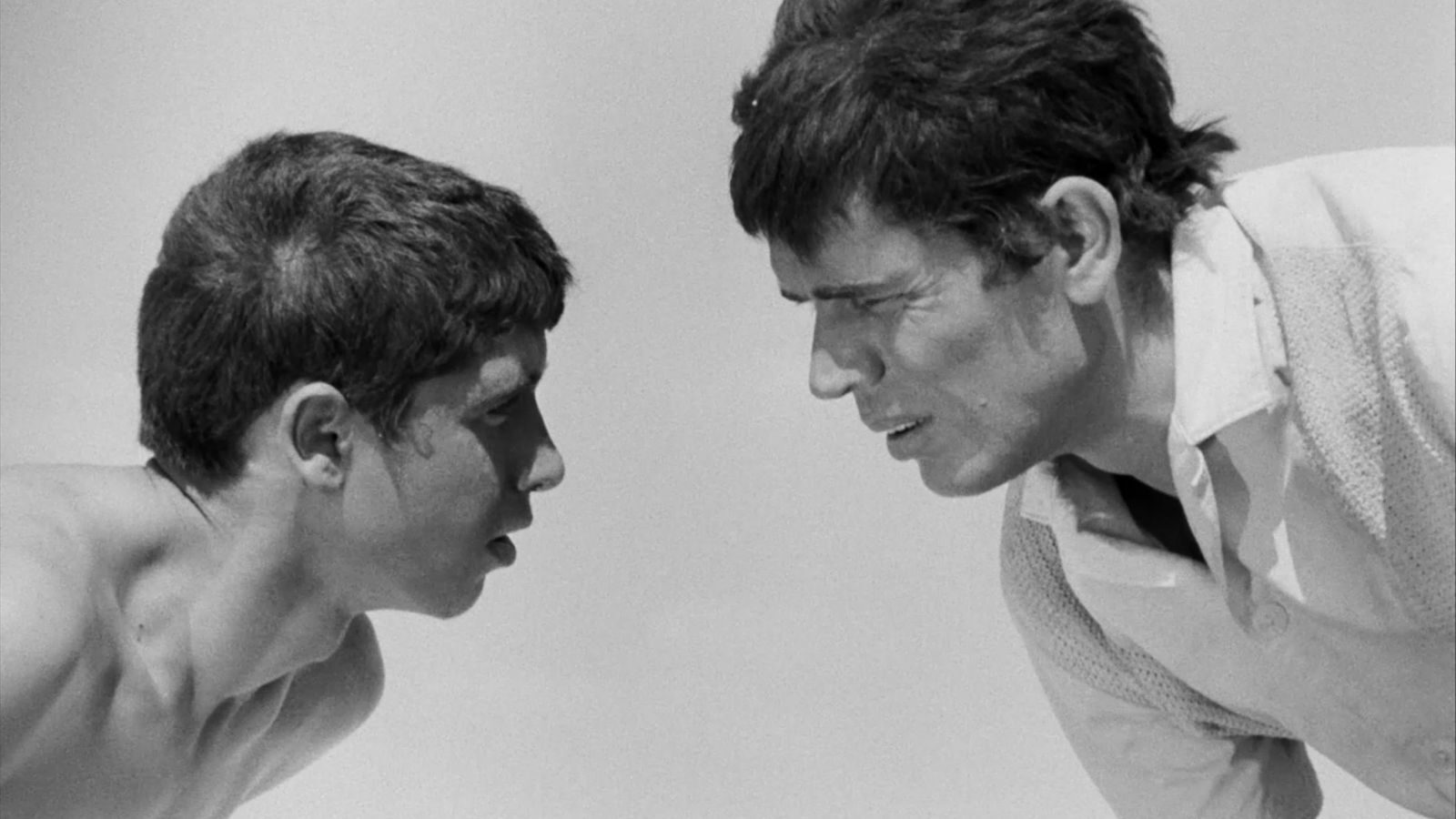
Once on the road, the final piece of the narrative puzzle is revealed, the story of Abul Khaizuran, the soldier who lost his manhood. More than a backstory, we are allowed a glimpse into the smuggler’s mind in order to understand the motivations behind his bold willingness to risk both his and the others’ lives. Abul Khaizuran is a man who feels he has lost everything to a cause destined for failure.
Rendered impotent by war, he now dreams only of sweet retirement under the shade of a money tree, an analogy for the impotence of a defeated Pan-Arabism. The sentiment being that “honest men remain paupers”, and that what may be deemed as selfish pursuits are in the end the most reasonable ways of living when one is “more tired than anyone should be”.
The Dupes weaves an interconnected plot made of different simultaneous tellings, a formalistic choice which only enhances the film’s didactic message. By introducing the political circumstances affecting a whole nation, reducing them down to multiple intersecting but uniquely individual struggles, the film is able to underline the universal desire for dignity buried within each of us. Saleh’s cinematic language enables a deep emotional resonance.
The characters’ moral dilemma and inner struggle becomes one as it unwinds; that of the occupied man who must either fight or take flight. The film becomes a testament to the power of cinema, creating the possibility for cross-cultural empathy and understanding. Saleh himself deeply believed that cinema can and should be wielded as a tool for societal change, simply by virtue of truly showing us to each other. Perhaps by exposing the universal humanity and common desire for dignity and prosperity, we can build long lasting peace amongst peoples.

IV. Contemporary Palestinian Struggle
52 years since the film’s release, how have pieces like The Dupes that directly address the Palestinian question, affected the course of history?
Cultural soft power is mostly associated with the likes of Hollywood and The Cold War, serving dominant political narratives. However, films that highlight the struggles of oppressed peoples also play an important role in the context of broader movements advocating for human rights. Not only do they reinvigorate momentum for those directly involved in these conflicts, they also help shape the attitudes and perceptions of unaffected viewers across the globe. By amplifying Palestinian voices, The Dupes undoubtedly contributes to bridging reconciliation across the political board, simply by encouraging critical reflection over dominant narratives.
It is no secret that The United States has strong diplomatic and military ties with Israel, and that Hollywood’s take on the conflict is heavily influenced by these geopolitical dynamics. This creates a stark imbalance when it comes to creating a fair representation of both parties, with numerous instances of censorship and silencing of voices in support of Palestinian rights. Media and entertainment is pivotal in shaping public opinion, and public opinion in turn plays an immense role in the ways that global conflicts unfold. Holding space for independent film is essential to overcoming the disparity of perspective present in the mediatic sphere today.
The philosophical core of The Dupes reflects the broader historical context of Palestinian representation, as it portrays individuals caught in an impossible battle against a dominant force. In an atmosphere where the perspective of a people oppressed for 76 years is blindsided, simply elevating works of art can have a hand in altering the course of the mainstream, creating a dent in the machinery. Though it may seem fruitless, it is precisely because of the visibility of the recent war waged on Gaza, through social media, that the world has seen unprecedented support for the cause.
By telling the individual stories and struggles of people, we are able to generate a magnetic type of compassion and eventual calls for action. Art is the most effective tool we possess to unveil the universal within the acutely individual, and among the arts, cinema stands out as the most immersive and emotionally resonant medium. Deeply human works like The Dupes have the potential to unite seemingly dissimilar people around the fundamental experiences that define humanity; the desire for freedom, dignity, and self-determination; highlighting that there exists no sensible reason for us to fear each other.

V. The Depressing Reality: Brutality of Colonialism: “You Stay, You Fight, You Die”
The Dupes presents us with a situation: Palestine about 10 years after the first Nakba. What is an occupied man to do? What choices does he have, and does the brutality of colonialism lie in the lack of choices available to the occupied populace?
According to Ghassan Kanafani, the fundamental question that faces the occupied man is whether to resist or surrender. Resistance often implies completely risking one’s life in order to achieve freedom, requiring immense courage and sacrifice. The character of Mr. Salim is the embodiment of this choice in the context of the story. He dies a dignified death when the occupying forces come to attack his village, and in his death inspires others to continue the struggle for liberation.
However, resistance carries with it an immense psychological toll when one is facing constant threats, violence and terror. The mental wounds left by such a pursuit are profound and enduring. Abul Khaizuran is an example of a resistance fighter who lives to see himself fall into a certain ideological despair. The weight of his physical, mental, and emotional scars leads to opt for the easy way, or ironically the path of least resistance, the personal pursuit of wealth. He explains that he is tired, and rightly so, he too deserves to rest. If the occupying force does not manage to kill the resistance soldier, they manage to kill his belief in his own liberation.
Another option is to flee one’s homeland in search of safety and prosperity. The price is the abandonment of one’s land and heritage in the process. This path is represented by the man flaunting his wealth to Abu Qais, and Zakaria, Marwan’s older brother. They successfully cross the border into Kuwait and go on to build decent lives, but in the process pass the burden of resistance down to someone else. By running away they allow the problem to continue and transfer the responsibility of meaningful change down onto the younger generation. Their decision highlights the painful reality faced by many under occupation: the choice between survival and self-preservation or staying true to one’s principles and identity.
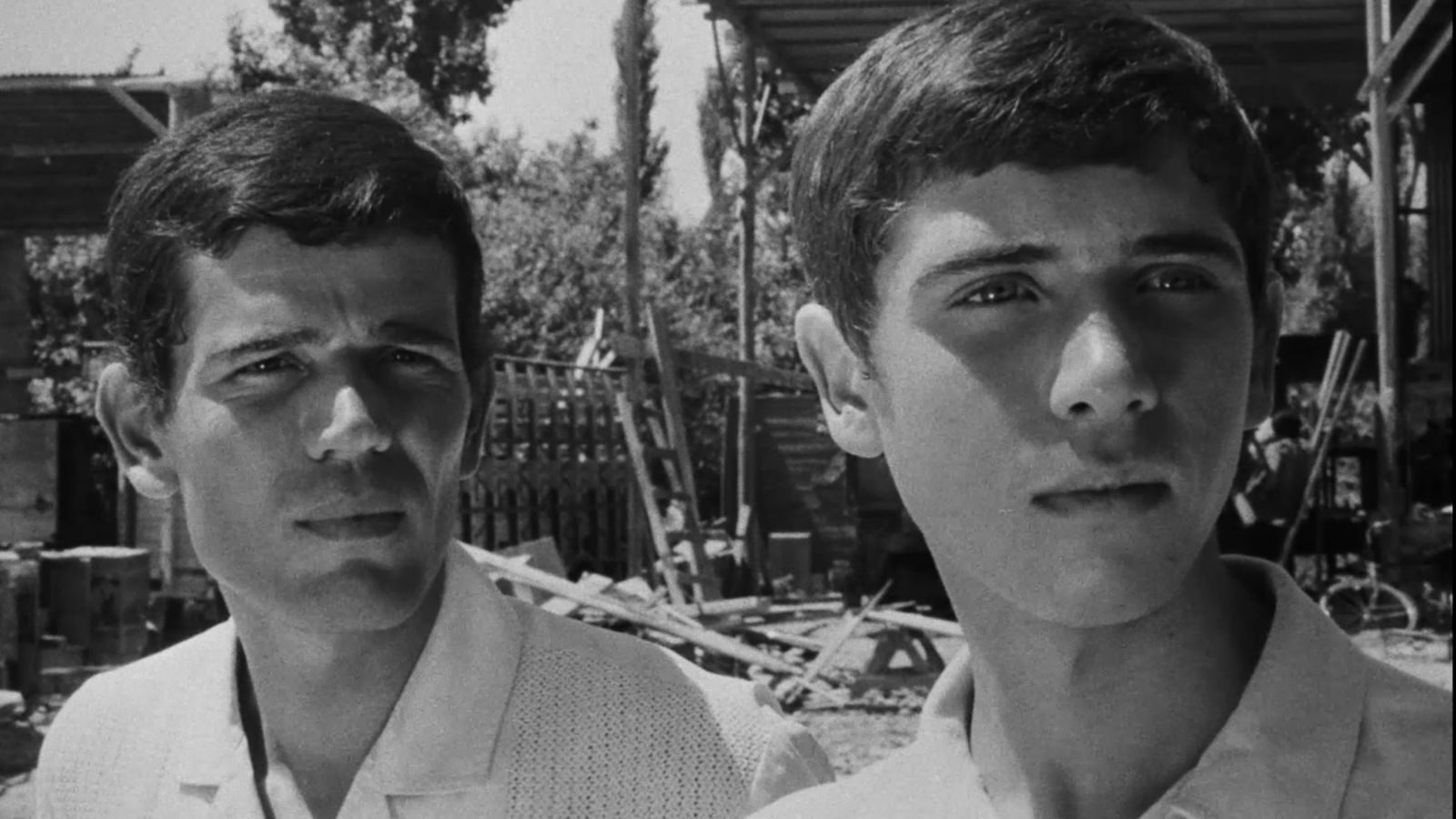
For some, acceptance of the occupation may seem like the only option for survival, but it comes at a profound cost. Living under constant oppression and degradation, they are stripped of their dignity and humanity, reduced to mere objects of colonial exploitation. Their lives become a bleak existence, devoid of hope or purpose. This desperation is precisely what drives Abu Qais, Marwan and Assad down the path to their deaths.
What is the occupied man to do, but die in the hopes of contributing to a larger struggle that will one day result in change? Herein lies the tragedy of the displaced man, that he is doomed no matter which way he escapes death. Therein lies the brutality of colonialism, sentencing an entire nation to tragedy.
The Dupes delves into the intricate complexities of colonialism, illuminating the deep-seated ramifications it inflicts on the lives of its victims. Throughout the film, a poignant motif surfaces: the realization of the ineffectiveness of evading struggle and the imperative of confronting it. This sentiment is epitomized by the opening quote, “A man with no country will have no grave in the Earth, I forbid you to leave”, which resonates with the theme of resilience and the rejection of silence and erasure.
VI. Conclusion
Through its nuanced portrayal of Palestinian characters grappling with impossible choices, The Dupes sheds light on the psychological and sociopolitical complexities of living under occupation. By weaving together the personal narratives of individuals caught in the grip of colonialism, the film invites viewers to confront the harsh realities faced by oppressed peoples and the universal desire for dignity and liberation.
Furthermore, The Dupes serves as a reminder of cinema’s potential to incite social change and foster cross-cultural empathy. By amplifying Palestinian voices and challenging dominant narratives, the film contributes to broader movements advocating for human rights and justice. Despite the ongoing tragedies faced by the Palestinian people, works of art like The Dupes offer a glimmer of hope and resilience in the face of colonial brutality.
Ultimately, Tewfik Saleh‘s film urges us to confront the futility of evading struggle. It reminds us that silence and inaction only perpetuate oppression, while resistance and solidarity offer a path towards a more just and equitable future.
As we reflect on the enduring legacy of The Dupes, let us hear its call to stand firm wherever we may see oppression and work towards a world where all people can live with dignity and freedom.